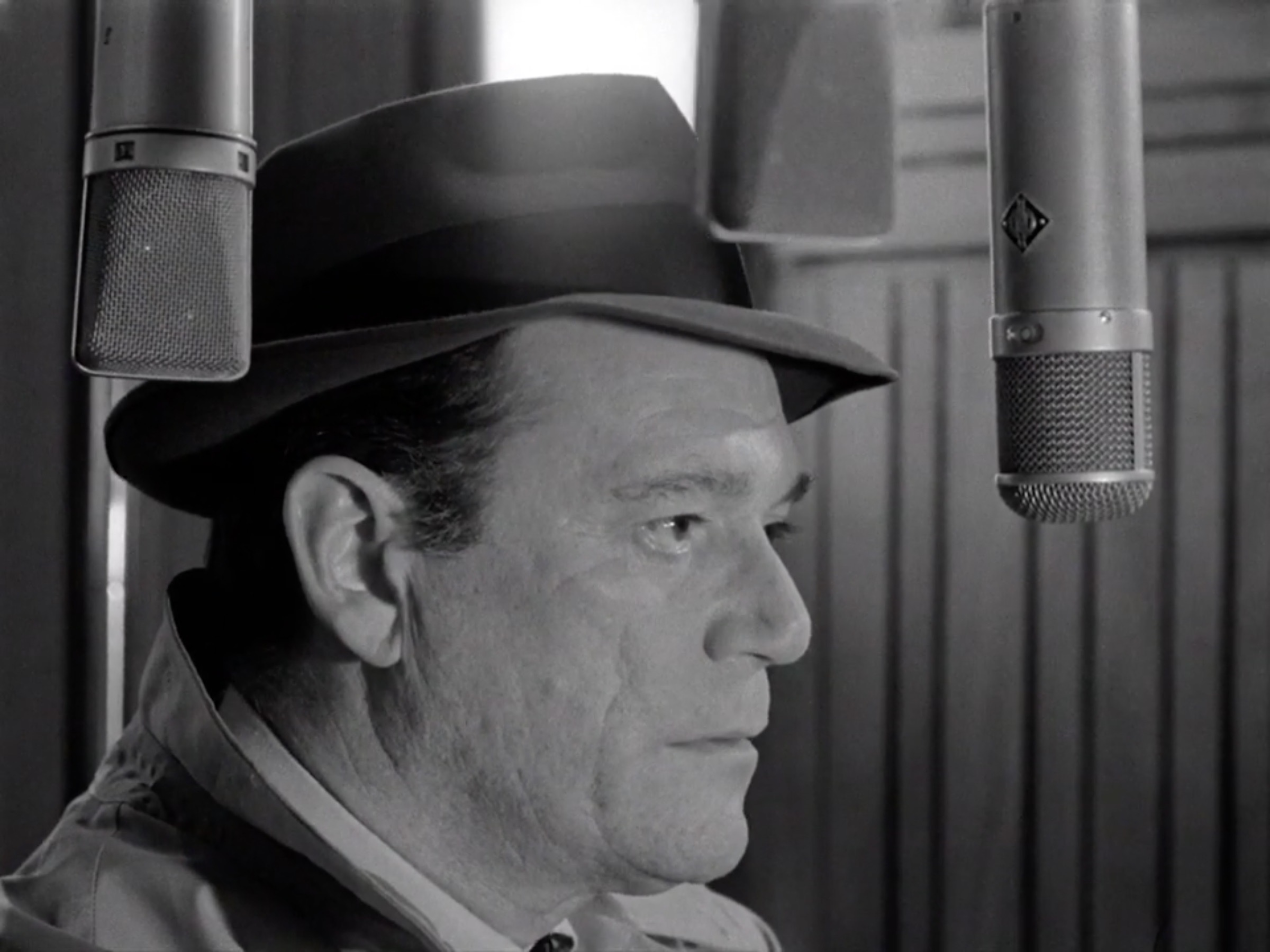
A U.S. secret agent is sent to the distant space city of Alphaville where he must find a missing person and free the city from its tyrannical ruler.
EN
“Sometimes, reality is too complex for oral communication. But legend embodies it in a form which enables it to spread all over the world.”
Opening of Alphaville
“Jean-Luc Godard’s 1965 science-fiction drama and pastiche, Alphaville (which I discuss in this clip) is, among other things, an exemplary use of genre conventions and cinephilic references to explore the filmmaker’s philosophical ideas and intimate concerns. Having already wrangled with the notion of advertising’s version of mind-control in A Married Woman (and invented a distinctive modernistic abstraction to evoke it visually), he turned to the new realm of high-powered computers (a theme suggested to him by Michelangelo Antonioni when they met at the Venice Film Festival in 1964) and, after visiting computer firms in New York and France, decided to make a film about them. Or, rather, he had wanted to make an adaptation of Richard Matheson’s science-fiction novel I Am Legend (which was already the basis of his 1962 short film Le nouveau monde) and wanted to emphasize its vampire element, but his producer didn’t agree. He also wanted to adapt Brian Aldiss’s science-fiction novel Non-Stop, set in a flying spaceship-as-city, but knew it would be too expensive.
Instead, Godard filtered elements of these stories into this dystopian secret-agent story, which he then infused with details, references, and styles of German silent movies (fusing wild subjectivity with sharp moralism) and American detective films (with their snappy disdain for authority) – and filmed on location in and around Paris. For Godard, a society run by technocrats in thrall to their machines was inimical to art and to love; he turned that future society, the fictitious Alphaville, into a tyranny that banned those notions and punished them by death. In the midst of it, he placed, in effect, the last man of conscience, and put him there to rescue a woman, whom he brings around to his humanistic values. And the actress who played that role, Anna Karina, had been his wife; they had divorced shortly before the start of filming. It’s as if the film sets in synch the cosmos at large and the filmmaker’s personal life; as such, it’s one of the great cinematic works of romanticism, as well as a sort of filmed revelation of the very essence of science-fiction movies and German silent classics – their blend of social critique, emotional liberation, and paranoia.”
Richard Brody1
“Jean-Luc Godard’s film – ‘a science fiction film without special effects’ in the words of the critic Andrew Sarris; ‘a fable on a realistic ground’ in Godard’s own description – is a cry of protest aimed at the worshippers of science and logic. Unlike Stanley Kubrick’s 2001: A Space Odyssey, which now resembles a picturesque relic of long-abandoned aspirations, Alphaville still seems to be watching the world come to meet it. And the world is very much closer to the director’s creation than it was back in 1965.
[...]
This was Godard’s ninth feature film in six years, a rate of production resembling that of Beatles albums. There are signs of haste and improvisation, so Alphaville is much the better for its ability to make us think and trigger our feelings. At times it is a cartoon (the shootings, the use of negative images to convey disorientation) but at others it is more chillingly prescient than ever.
Yet Godard ends the piece on a note of romantic optimism, with Lemmy and Natasha escaping their pursuers and a dying world, fleeing to safety through intersidereal space (otherwise known as the Boulevard Périphérique) as the girl learns a new phrase: ‘Je vous aime ...’”
Richard Williams2
“If the film’s style, then, embodies Expressionism, it is the characters that embody film noir. With his trench coat, fedora and ever-present cigarette, Lemmy Caution is clearly modeled on Philip Marlowe and Sam Spade by way of Humphrey Bogart. This allusion also becomes self-conscious — Lemmy is seen reading Raymond Chandler’s The Big Sleep in his hotel room. (It’s also worth noting that Eddie Constantine was an American expatriate actor.) Alphaville’s ‘seductresses’ have an equivalent in the femmes fatales of film noir, while the presence of actor Akim Tamiroff is obviously meant to invoke Orson Welles. Here, Tamiroff essentially plays the same seedy characters that he essayed in Mr. Arkadin (1955) and Touch of Evil (1958), two Welles films for which Godard has professed his admiration.
Ultimately, Alphaville is the work of a cinephile. Through a complex series of inter-textual references, Godard successfully illustrates how film language evolved in the first half of the 20th century. In so doing, Godard is also celebrating the directors and films that helped make that evolution possible. But when he chose to resurrect the character of Lemmy Caution 26 years later, Godard’s purpose could not have been more different.
In 1990, Godard was commissioned by French television to make a documentary about the collapse of communism in East Germany. The resultant film turned out to be a semi-sequel to Alphaville with Eddie Constantine again playing the lead role. Although shot in 35 millimeter, the film premiered in France on television, thus lending ironic credence to Alphaville’s prophecy of the death of cinema in a line about movies only being shown in ‘Cinerama museums.’ The title of the film, Allemagne 90 Neuf Zéro, is an untranslatable pun; the word ‘neuf’ in French can mean either ‘nine’ or ‘new.’ The title therefore refers to both 1990, the year the film was made and to Roberto Rossellini’s 1948 film, Germania Year Zero.”
Michael Glover Smith3
- 1Richard Brody, “DVD of the Week: Alphaville,” New Yorker, 30 May 2012.
- 2Richard Williams, “My favourite film: Alphaville,” The Guardian, 28 December 2011.
- 3Michael Glover Smith, “JLG: Now and Then,” White City Cinema, 30 July 2010.

